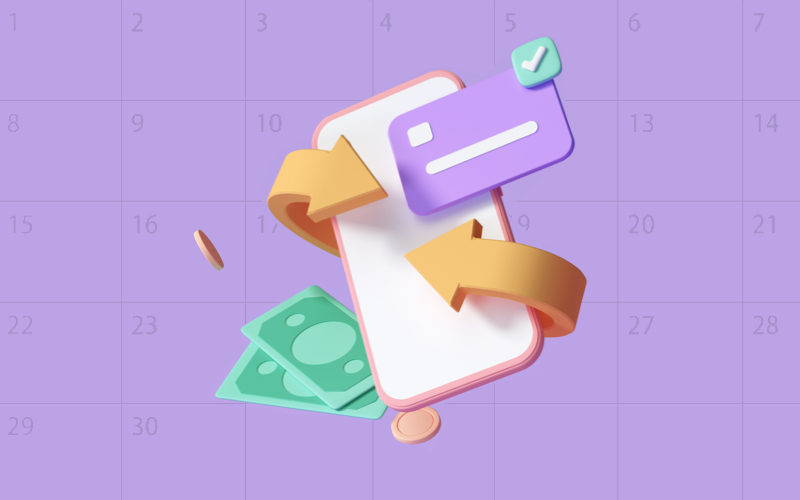“When is my bill due?”
Does this question come to your mind often?
Well, why wouldn’t it. Considering the multiple drawbacks of late credit card bill payments, it is quite important that you stay alert of your credit card billing cycle. While you can make the maximum benefits out of your credit card, you can also lose all your assets to it. And, whether you benefit from your credit card, or you lose from it depends only on how well you use it.
Paying your dues on time is one major thing that will help you balance your expenses, and will never land you in trouble with a credit card. Among hundreds of other terms that you need to be familiar with, as you use a credit card, but a “credit card billing cycle” is certainly the most important of all.
What is a Credit Card Billing Cycle?
The time duration between the closing date of your last statement and the closing date of your next statement is termed as the credit card’s billing cycle, or the credit card’s billing period. When you use a credit card, you are bound to repay the money that you’ve borrowed from your bank within a specific time period. Such a financial product, or others of the like, have billing cycles to stay aware of the time period to repay the borrowed amount.
Let’s take an example to understand how a credit card billing cycle works-
Suppose that your credit card statement is generated on the 5th of every month. Now, your credit card billing cycle will start from the 6th of the previous month to the 5th of the current month. All the transactions that you make during this time period will be listed in your monthly credit card statement for this month.
How does a Credit Card Billing Cycle Work?
Read below to understand how a credit card billing cycle actually works-
- Your credit card’s billing cycle starts right from the day when your credit card gets activated. On the first day, your statement appears to be zero
- It must be noted that if you transfer any balance to your new card, then there may be balance transfer charges included in the statement
- Now, from the first day of your credit card activation, all your transitions would be recorded in your credit card statement, and the expenses made would be added to the credit card bill
- Additionally, if you make any cash withdrawals from your credit card, the cash withdrawal charges would also be included in your statement
- The amount paid to the credit card in the form of a fuel surcharge waiver or reversal of the payments made, etc. will be deducted from your credit card bill
- It is important to note that the transactions made after the closing date of your credit card billing cycle will be included in the next month’s statement
Read More: How to Apply for a Credit Card - The Complete Guide to Credit Card
Credit Card Minimum Payment
Credit Card minimum payment is the minimum amount out of your total monthly credit card bill that must be paid by the due date. It is important to note that it is only mandatory to pay the minimum amount due by the due date in order to avoid any interest charges on the billed amount. The remaining amount can be paid by the next billing cycle.
This minimum amount due is also termed as MAD and is fixed up by your credit card issuer. Your monthly minimum amount due is mentioned in your monthly credit card statement. It must be noted that the MAD is generally equal to 5% of the total unbilled amount on your credit card. In certain cases, the MAD is also fixed to around Rs. 200 to Rs. 300 (depending on the type of your credit card).
Important Points to be Considered for Credit Card Billing Cycle
Here are a few points to be noted about a credit card’s billing cycle-
- A credit card’s billing cycle lasts for around 28-31 days
- A billing cycle remains equal for all the months, irrespective of the number of days in a month
- Every billing cycle has a due date, which is the actual date by which all your credit card dues must be cleared
- Your due date is within 21 days from the date of closing of your billing cycle; giving you ample amount of time to make the payments
- The time period between your billing cycle and the due date is termed as the grace period
- Paying off your bills within the grace period will not apply any interest charges; failing to pay the bills, however, will result in higher interest rates on the billed amount
- Your credit card billing cycle is listed on the first page of your monthly statement



